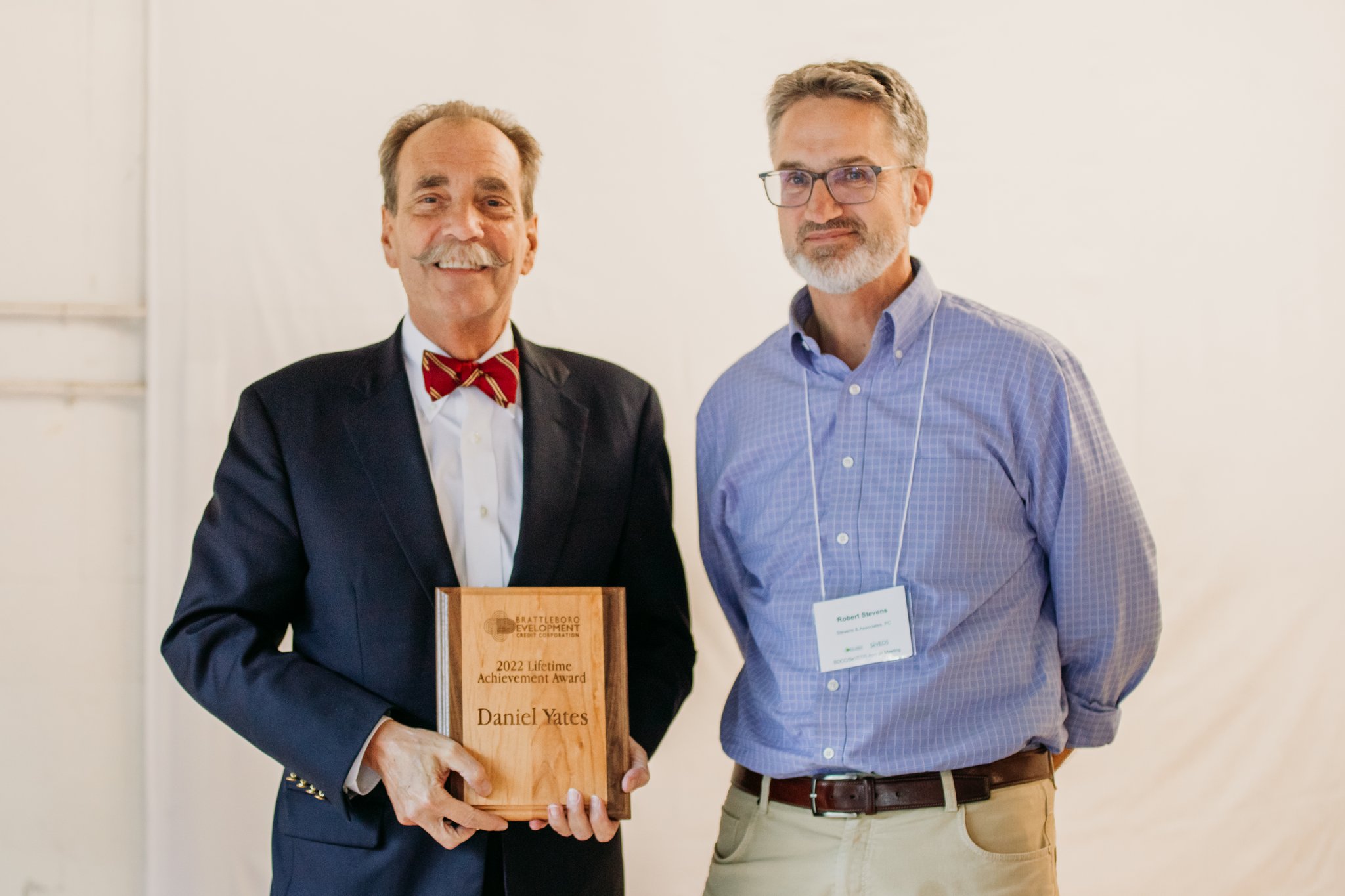
Reblog: Refugee resettlement program welcomed to Brattleboro family
As a part of the Welcoming Communities initiative, the BDCC has been on the forefront of welcoming the Ethiopian Community Development Council to Brattleboro as they explore refugee resettlement in our region. This is a reblog of a recent article in the Brattleboro Reformer.
Refugee Resettlement Program Welcomed to Brattleboro family
BRATTLEBORO — A refugee resettlement program proposing the opening of a Brattleboro office received a warm welcome from community members.
“Welcome to the family here in Brattleboro, open hearts and open arms,” Gary Stroud, a member of Representative Town Meeting and various town committees, said Tuesday following a presentation to the Select Board.
Ethiopian Community Development Council (ECDC) applied to the United States Department of State to establish an office in Brattleboro. The hope is to open in October.
Select Board Vice Chairman Ian Goodnow said he fully supports the project, calling it a way to “make Vermont the place we want to be” in terms of diversity and inclusion.
“I don’t feel a lot of shame about my state but one of the moments where I felt a lot of shame was when a community in Vermont a few years ago full heartily rejected refugees,” he said, referring to Rutland. “I felt it in such deep personal place because that wasn’t what I thought my state was, so I told myself if I was ever in a position of leadership where this opportunity would come up, I would fully embrace it.”
Select Board Chairwoman Elizabeth McLoughlin said the board is not being asked to take any actions but will stay in touch about potential support the town can provide.
The project is happening in partnership with Brattleboro Development Credit Corp., which identified the need for in-migration and immigration about a decade ago when its affiliate Southeastern Vermont Economic Development Strategies went through a federally prescribed process to map out a plan for the region. BDCC Executive Director Adam Grinold said the process revealed Windham County is losing population and aging faster than most parts of Vermont and the United State.
Workforce programs at local high schools were created with an eye toward keeping younger residents in the area. And the region had some new people arrive during the COVID-19 pandemic.
“It turns out pandemics help with in-migration,” Grinold said, “but immigration is much more challenging.”
Due to federal changes in refugee capping during the Trump Administration, BDCC had to hold off on moving forward more aggressively on immigration efforts earlier. Grinold said the economy would benefit from new residents but they also would contribute to creating a more vibrant and diverse community.
“Our role is to convene the partners that we work with regularly in our other workforce development work and other community development work to help design that system and infrastructure to support folks of all backgrounds,” said Alex Beck, manager of Welcoming Communities at BDCC.
Once refugees become new Americans and move elsewhere, the hope is to get them to stay in the Brattleboro area. Partners in the project include Community Asylum Seekers Project, SIT Graduate Institute, the Moover bus service, and regional planning commissions in Windham and Bennington counties.
Tsehaye Teferra, founder of ECDC who joined the meeting via Zoom, said his nonprofit started operating in 1983 with a focus on Ethiopian refugees and expanded to become more multicultural by serving refugees from all over the world. Currently, the group has sites in 15 cities across the country.
Rebecca D. Hailemeskel, associate director of the reception and placement program at ECDC who also participated by Zoom, said refugees are escaping war persecution and natural disasters from different parts of the world. To date, she counted more than 60,000 refugees who were resettled through her group.
Hailemeskel described a long process that involves the president consulting with Congress to set the number of refugees allowed in the U.S., an admissions program with eligibility interviews and an extensive background check, and medical examinations and cultural orientation.
Between September and October, ECDC wants to hire a director of the Brattleboro office — a job that is being advertised now. By the end of October, the group wants to hire additional staff.
Between November and December, the hope is to have as many as 75 individuals resettled in the community. Hailemeskel said the group will work with service providers, volunteers and local organizations to help refugees become self sufficient.
Select Board member Jessica Gelter wondered, why Brattleboro? Teferra said his group mostly worked in big cities where there might already be a lot of immigrants and he views Brattleboro as place where refugees might have better interactions with the residents.
HOUSING ISSUES
Lack of housing has been a major concern brought up by many since talks began.
“I think that’s a question that has to be addressed very quickly and in an upfront way to put people’s mind at ease, that there will be help for people with housing,” board member Tim Wessel said.
Beck said the groups are working with others that are already involved in finding solutions for the housing crisis. Windham & Windsor Housing Trust is lending support to the effort.
Joseph Runge of Newfane expressed skepticism for the benefits of the program if the number of refugees is still unknown.
“I know someone who used to be in Rutland when they rejected the refugee thing,” he said, “and they wanted like more than 100 people a year for 10 years or something. It was some crazy number.”
Questioning profitability for ECDC, Runge said the group has an incentive to “flood the community with as many people as they can without regard for how it benefits us.”
“Let me just caution you, Joseph, some of the terms you used were insulting,” McLoughlin said. “And in this presentation, you can certainly ask for information but I really wouldn’t want derogatory comments directed towards our guests.”
Teferra said refugees each receive a $1,250 one-time grant which must cover food, housing and furnished apartments.
“This program is not really supposed to be a public program. It is a public private partnership,” Teferra said, adding that his group will appeal to the community to make the program work. “Our hearts and souls are really in it to help people resettle and get away from the trauma, the difficulties, the conflict … so anybody working in this field is not motivated by financial gains.”
Grinold said BDCC and ECDC will be fundraising for the effort, and reaching out to landlords who might be interested in offering housing.
“I’m not speaking for the School Board but a lot of us feel that having refugees in Brattleboro is not only good economically, it’s not only the right thing to do, it’s the compassionate thing to do,” said Tim Maciel of Brattleboro, Windham Southeast School District Board member. “But our schools are going to benefit tremendously from a little more diversity in the classrooms. We’re very well positioned to serve refugee children.”
A small group from St. Michael’s Episcopal Church in Brattleboro is “exploring deeply becoming a cosponsor in this project because we think that it’s good for the community,” said Jeff Lewis, former BDCC executive director. “We think that it speaks to our heritage … that we were all refugees in one way or another.”



